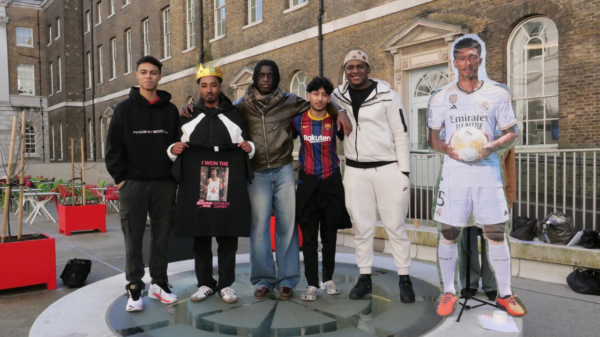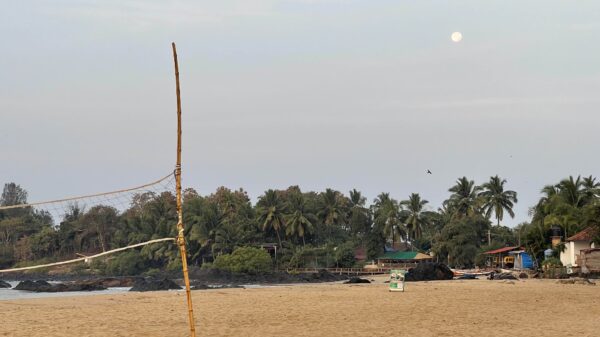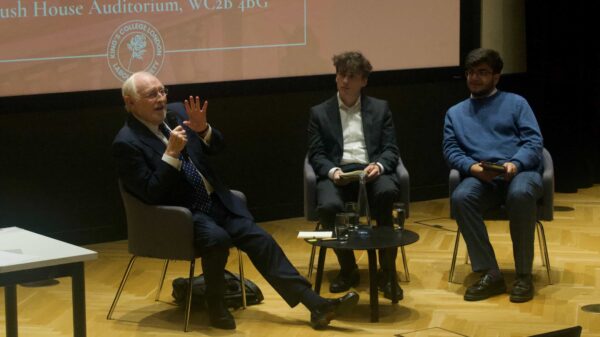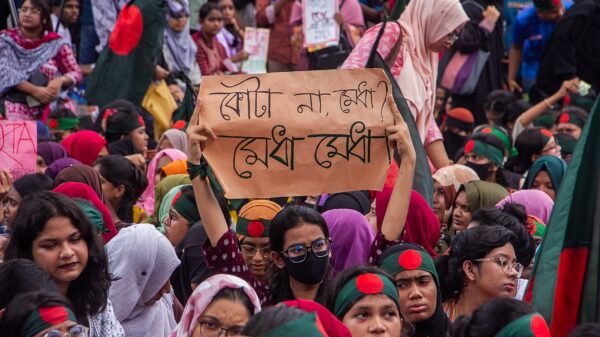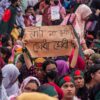Guest Writer Mia Kazbegi examines the escalating political crisis in Georgia following disputed elections, highlighting the country’s struggle against authoritarianism, its stalled EU aspirations, and the urgent need for international support to defend democracy.
The perilous decline of democracy which many Western countries are facing today is dramatically showcased with the current crackdown on civilians in the Caucausus country of Georgia. Not since the fall of the Soviet Union and the Georgian Civil War has civilian unrest and determination against the regime been so strong. The recent Georgian elections in October 2024 are widely disputed by all opposition parties and international observers alike, claiming that “Georgian Dream”, the current ruling party, rigged the elections.
Georgian Dream, in power since 2012 is firmly under the control of the Georgian oligarch Bidzina Ivanishvili, who has strong personal ties with Russia. Moreover, Georgia’s geographic location right in the busy, sanctions-defying corridor between Putin’s Russia and Iran and off-ring direct Black Sea access, makes it a strategic gem and profitable object of desire amidst its neighbours’ political and expansionist ambitions.
In 2023, Georgia finally commenced the EU accession process, a then celebrated milestone for the country’s decades-long pursuit of Western integration. However, Georgian Dream abruptly changed its strategy when in April 2024, the parliament passed a new foreign agent law, labelling civil society groups as foreign agents if at least 20% of their funding comes from abroad, effectively allowing the state to close in on NGOs and popular media outlets which are critical of the government, the first step towards censorship. Importantly, the EU stands against this law as it does not correspond to EU accession principles. While this “Russian law” prompted mass demonstrations in April-May 2024, it did not receive enough international media attention, a dangerous oversight by the West.
Following the flawed parliamentary elections in October 2024, a new wave of mass demonstrations calling for new elections spawned all across Georgia. Meanwhile, Georgian Dream, led by Prime Minister Irakli Kobakhidze, announced on 28 November that Georgia would place accession discussions with the EU on hold until 2028 and was refusing any funds from the EU. This ruling violated Georgia’s Constitution as clause 78 affirms Georgia’s goal of joining the EU and NATO, making it a requirement for the government to work towards that goal. Moreover, polls indicate that 80% of Georgians are in favour of EU integration.

Georgia’s drive for freedom has transcended many centuries, including their short-lived independence between 1918 and 1921, their break off from the Soviet Union in 1991, the civil war of 1991-1993 and the Rose Revolution of 2003, as well as the more recent protests following the November ruling by Georgian Dream. Georgians now firmly stand against the current authoritarian regime, which is aligned with Russia.
As the intensity of demonstrations picked up, police forces resolved to use water cannons, pepper spray and tear gas to brutally disperse protestors, causing mass hospitalisations. Locals in Georgia have reported that to intimidate citizens, Georgian Dream have resorted to fear-mongering and began raiding houses, arresting protestors and even journalists. Citizens and independent media outlets have released videos of “Titushkas”, anonymous thugs under police protection who intimidate the crowds, beating up peaceful civilians. Rather than backing down, the systematic state terror has fuelled more anger in Georgian protestors, who have firmly embraced the fight for freedom, which in this case means aligning with the West and escaping the grip of the Kremlin.

Everyone from children to the elderly, the intellectual elite, workers and farmers have been on the streets for ten consecutive nights in an all-out demonstration against the regime. This is a regime which wants to preserve its business model and stifle resistance from a population which desperately wants to be allied with the EU and re-establish a democratic Georgia. Schools and universities have gone on strike, large parts of the government oppose the ruling by Georgian Dream, and many government workers have resigned in protest, among those six ambassadors. Giorgi Bedineishvili, Dean of the Business School for the Free University of Tbilisi, says that the high turnout of protestors has remained stable throughout the demonstrations and expects them to continue until new elections are called.
The Georgian President Salome Zourabishvili is the only figure in the current government who firmly stands on the side of democracy and has been a strong motivating force for the protestors. She condemned the “brutal and disproportionate” attacks “on the Georgian people and media,” likening them to “Russian-style repression”.
This concerning, yet certainly accurate observation highlights two possible outcomes: either a victory for the people or a triumph for the Georgian Dream party – and by extension, a triumph for Vladimir Putin. The stout resilience and resolve of the Georgian people offers a glimmer of hope in this bleak situation, with their collective strength shining as a beacon of hope for democracy, as well as for other countries. However, the likelihood of further arrests, media suppression, and a brutal crackdown threatens to erode freedoms and push Georgia towards autocracy.

US State Department spokesperson Matthew Miller denounced the “excessive force used against Georgians rightfully protesting this betrayal of their constitution,” emphasising that the EU stands as a bulwark against Kremlin influence. Many Western governments have not recognised the results of the elections and have now also condemned the violence, yet it is evident that more decisive action is needed.
To curb Ivanishvili’s grip on power and reverse Georgia’s drift toward authoritarianism, concerted efforts must immediately target the Georgian Dream party specifically – through media scrutiny, civilian activism, and international condemnation, including, but not limited to, sanctions. Only through such resolute international measures could Georgia move closer to the West and further away from Russia.
If the West still exists, it must wake up and come together immediately to effectively support Georgians and their desperate fight for democracy. The importance of this conflict between citizens and an authoritarian state is not simply a situation unique to Georgia, this is rather a battle of paramount importance to the preservation of democracy around the world.





